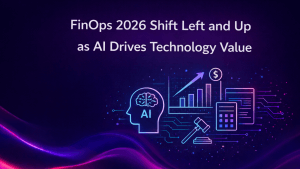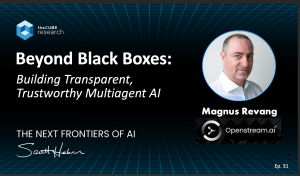Cisco Partner Summit is taking place this week in LA and, while I’m not attending in person, I’m following the news and announcements coming out of the Summit, which is coming on the heels of Cisco’s WebexOne event, held last week in Diplomat Beach, Florida. I’m not at all surprised to see Cisco’s AI infrastructure play here.
Cisco Partner Summit News: Focus on Infrastructure
As enterprises race to adopt AI capabilities, Cisco is clearly positioning itself as a crucial infrastructure provider with its latest announcements, marking a significant expansion of its data center portfolio. The networking giant’s introduction of AI-focused servers and pre-configured AI PODs represents a calculated response to the growing enterprise demand for AI infrastructure – and more importantly, signals Cisco’s determination to remain relevant in the AI era.
The timing is strategic. According to Cisco’s own AI Readiness Index, while 89% of IT professionals plan to deploy AI workloads within the next two years, only 14% of organizations report having AI-ready infrastructure. This gap presents a substantial market opportunity, especially considering McKinsey’s projection that generative AI could add up to $4.4 trillion annually to global economic output.
UCS C885A M8 Server: a Dedicated AI Server and Compute System Built on NVIDIA’s HGX Platform
The centerpiece of Cisco’s announcement is the UCS C885A M8 server, the company’s first dedicated AI server and eight-way accelerated computing system built on NVIDIA’s HGX platform. This isn’t just another server — it’s a clear statement of Cisco’s ambitions in the AI infrastructure space. By incorporating NVIDIA’s H100 and H200 Tensor Core GPUs, along with NVIDIA NICs and BlueField-3 DPUs, Cisco is targeting the high-end market for AI training and inference workloads.
Cisco’s AI PODS: Pre-configured Infrastructure Stacks
Perhaps more significant from a go-to-market perspective are Cisco’s new AI PODs. These pre-configured infrastructure stacks represent a pragmatic approach to one of enterprise AI’s biggest challenges: deployment complexity. By packaging compute, networking, storage, and cloud management into use case-specific bundles, Cisco is essentially offering a “plug-and-play” solution for AI infrastructure. This could prove particularly appealing to mid-market enterprises that lack the technical expertise to architect complex AI systems from scratch.
Market Implications and Challenges Ahead
The strategy here is clear: Cisco is leveraging its traditional strengths in networking and infrastructure management while adapting to the unique demands of AI workloads. The integration of NVIDIA AI Enterprise software and Cisco’s Intersight management platform suggests a focus on operational simplicity — a crucial selling point for enterprises still finding their footing with AI deployments.
However, Cisco faces significant competition in this space. Dell, HPE, and Lenovo have all made similar moves to capture the enterprise AI infrastructure market. What sets Cisco’s approach apart is its emphasis on networking expertise, particularly with its recent introduction of 800G Nexus switching platforms powered by the Cisco Silicon One G200 chip. This networking-first perspective could prove valuable as organizations grapple with the unique data movement challenges posed by AI workloads.
From what I’m hearing and seeing from industry peers, partner reaction to the announcement has been notably positive. This channel support will be crucial for Cisco’s success, as many enterprises will rely on partners to guide their AI infrastructure decisions.
The real test for Cisco will be execution. While the company’s vision is compelling, the AI infrastructure market is moving at breakneck speed. The ability to deliver these solutions on schedule (with the server shipping by year-end and AI PODs available for order in November) will be crucial. Moreover, Cisco will need to demonstrate that its solutions can deliver meaningful cost and operational advantages over both traditional infrastructure and cloud-based alternatives.
Looking Ahead: A Compelling Vision for Enterprise AI Infrastructure
Looking ahead, Cisco’s move into dedicated AI infrastructure could prove transformative for both the company and its enterprise customers. By combining its networking expertise with NVIDIA’s AI capabilities and wrapping it all in a manageable package, Cisco is offering a compelling vision for enterprise AI infrastructure. Whether this translates into market leadership will depend on the company’s ability to execute on this vision and help enterprises bridge the gap between AI ambition and implementation.
For enterprises planning their AI infrastructure strategies, Cisco’s announcements deserve serious consideration. The combination of high-performance hardware and simplified deployment options could provide a practical path forward for organizations looking to scale their AI capabilities while maintaining control over their infrastructure. The next few quarters will be telling as these solutions reach the market and early adopters begin sharing their experiences.
See related coverage here:
Cisco’s New Webex AI Agent: A Strategic Move to Transform Contact Center Dynamics
Cisco Debuts New NVIDIA-Powered Data Center Systems for AI Workloads



